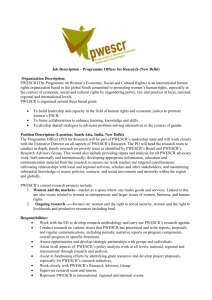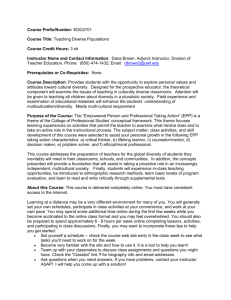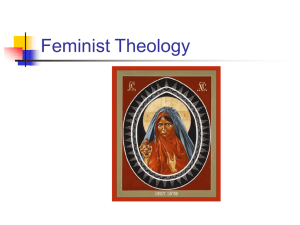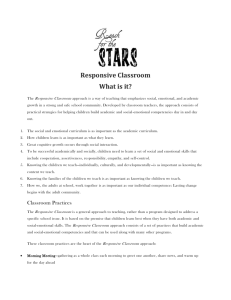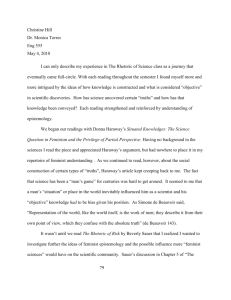WGS 9101 - Makerere University Courses
advertisement
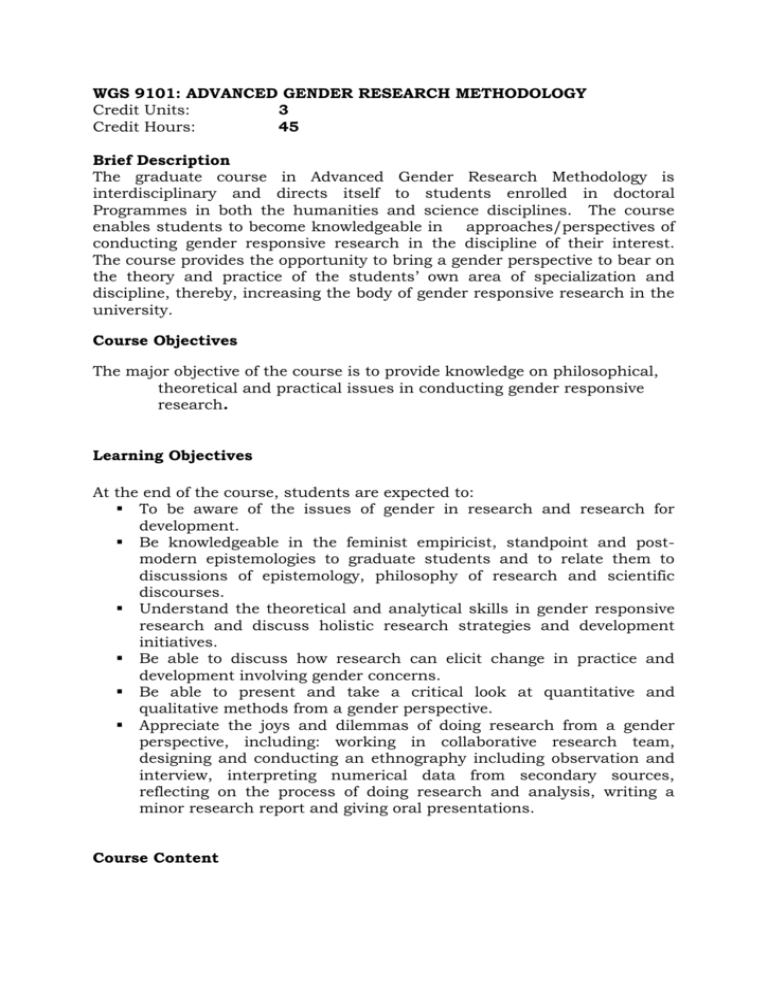
WGS 9101: ADVANCED GENDER RESEARCH METHODOLOGY Credit Units: 3 Credit Hours: 45 Brief Description The graduate course in Advanced Gender Research Methodology is interdisciplinary and directs itself to students enrolled in doctoral Programmes in both the humanities and science disciplines. The course enables students to become knowledgeable in approaches/perspectives of conducting gender responsive research in the discipline of their interest. The course provides the opportunity to bring a gender perspective to bear on the theory and practice of the students’ own area of specialization and discipline, thereby, increasing the body of gender responsive research in the university. Course Objectives The major objective of the course is to provide knowledge on philosophical, theoretical and practical issues in conducting gender responsive research. Learning Objectives At the end of the course, students are expected to: To be aware of the issues of gender in research and research for development. Be knowledgeable in the feminist empiricist, standpoint and postmodern epistemologies to graduate students and to relate them to discussions of epistemology, philosophy of research and scientific discourses. Understand the theoretical and analytical skills in gender responsive research and discuss holistic research strategies and development initiatives. Be able to discuss how research can elicit change in practice and development involving gender concerns. Be able to present and take a critical look at quantitative and qualitative methods from a gender perspective. Appreciate the joys and dilemmas of doing research from a gender perspective, including: working in collaborative research team, designing and conducting an ethnography including observation and interview, interpreting numerical data from secondary sources, reflecting on the process of doing research and analysis, writing a minor research report and giving oral presentations. Course Content Gender and feminist concepts and theorizing Gender and feminists and their relation to other concepts such as class, race, ethnicity and sexuality will be addressed, as will be theories of gender and feminist theorizing. Gender as an analytical category Multiple gendered identities, construction of masculinity and femininity; male & female identity, social construction of gender differences and gender analytical tools Feminist epistemologies Feminist empiricist, standpoint, and postmodern positions and their places in discussions of philosophy of research, epistemology and scientific discourses. Gender responsive research and research for development Gender research and activism, gender and participatory research, gender and action oriented research, macro-level research, use of macro-data to assess status of human development. Feminist theory and research perspectives The discussion centers on research informed by feminist theory and epistemology as well as gender focused research methodologies, use of multiple research methods, and on qualitative and quantitative research methods and analysis. Conducting gender responsive research Interpretation of numerical data, ethnography and text/discourse analysis with case studies from health and (un)employment. Practical work Students will carry out a gender responsive research study in own area of specialization (suggestions for areas are: agriculture, education, family and marriage, governance/political participation health, identity, labour markets, policy analysis and poverty Reflections on research practices and ethics of research Ethical and moral issues in the research process, relationship between the researcher and the researched. Students’ presentation of results of own research study including reflections on research process Course Delivery The course is largely participatory, involving lectures, tutorials and hands on practice. In addition to assigned readings and presentation of a critical analysis of these readings – the students are expected to carry out research and to relate the course work to their own experience of three different research methods (statistical analysis, ethnography and text/discourse analysis). Reading List Sharlene Nagy, Hesse-Biber, Patricia Leavy (Eds) (2008). Emergent Methods in Gender Research: Handbook of Emergent Methods. New York, Guiford Press. 740 pp. ISBN: 978-1-59385-147-7




